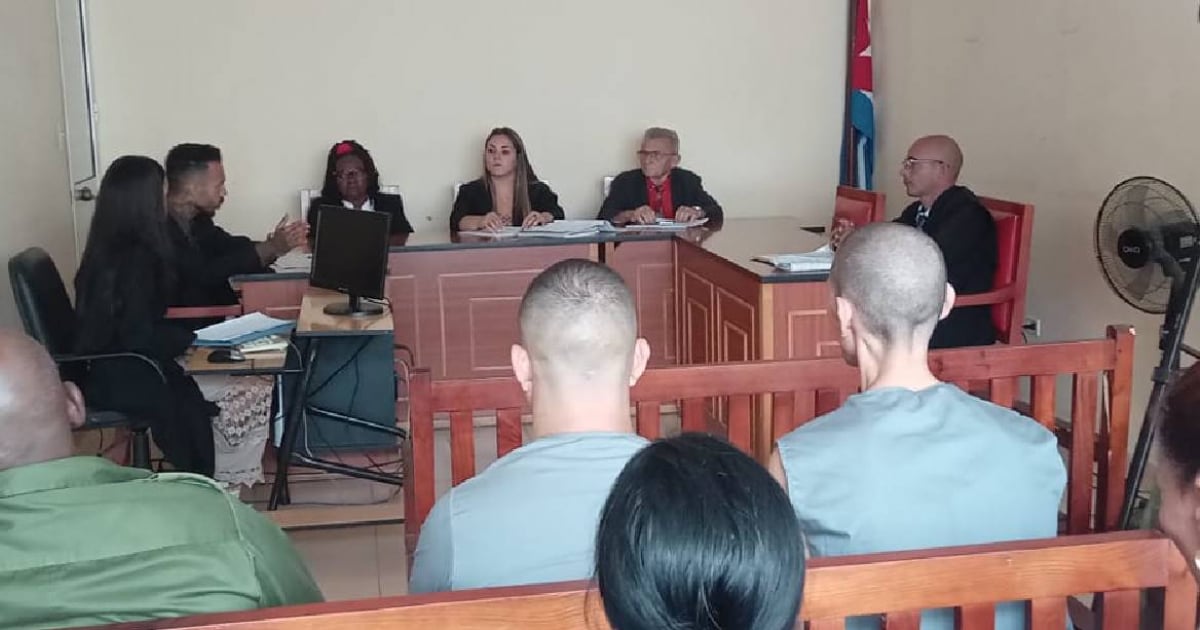
Related videos:
The People's Municipal Court of Holguín held a public trial in which the crimes of illegal slaughter of large livestock and trafficking of their meat were judged.
The accused, two individuals involved in this illegal activity, were publicly prosecuted as part of the National Exercise for Prevention and Combat against Crime, Corruption, and Illegalities on the island, in a context where the illegal slaughter of large livestock has surged, the entity reported on Facebook.
The court imposed a six-year prison sentence on those responsible and stated that the trial had a preventive and educational component.
During the process, individuals with potential criminal behavior were present in the auditorium as direct witnesses to the proceedings, as part of the strategy to strengthen civic education and deter future criminal conduct.
This trial is part of the effort to curb the rising crime rate in the region, particularly in offenses such as illegal meat trafficking, which impacts both the economy and the food security of the country.
This type of public trial is not new on the island. In Santiago de Cuba, the Municipal People's Court of Songo-La Maya has conducted several exemplary trials in recent months, in response to the rise in crime in the region.
The initiative, which is part of the strategy to strengthen prevention, is set against an unprecedented food crisis in Cuba and the ongoing rise in the theft and illegal slaughter of livestock. In some provinces, thousands of cows are lost each month due to this issue.
Frequently Asked Questions about Exemplary Trials and Crime in Cuba
What are exemplary trials in Cuba?
Exemplary trials in Cuba are public judicial processes that aim to discourage criminal activities by demonstrating the legal consequences of illegal actions. These trials not only punish the guilty but also have an educational component, as they are attended by individuals with potential criminal behavior and the community at large.
Why has illegal livestock slaughter increased in Cuba?
The illegal slaughter of livestock in Cuba has increased due to the food and economic crisis the country is facing. This has led many people to engage in illegal activities to meet their basic needs, impacting both the local economy and the country's food security.
What impact do illegal meat trafficking crimes have in Cuba?
The illegal trafficking of meat in Cuba negatively impacts the country's economy and food security. This type of crime not only increases criminal activity but also contributes to the scarcity of food resources, affecting local communities and the overall economic stability.
How are the Cuban authorities responding to the increase in crime?
Cuban authorities are responding to the rise in crime with the holding of exemplary trials and popular surveillance patrols. These measures aim to deter criminal activities and protect the community, although the effectiveness of these actions has been questioned by the local population.
What are the legal consequences for those accused of illegal livestock slaughter in Cuba?
Those accused of illegal livestock sacrifice in Cuba may face penalties of up to 15 years in prison. Additionally, accessory sanctions such as the confiscation of property and the obligation to provide financial compensation to the affected parties may be applied, depending on the circumstances of the offense.
Filed under: